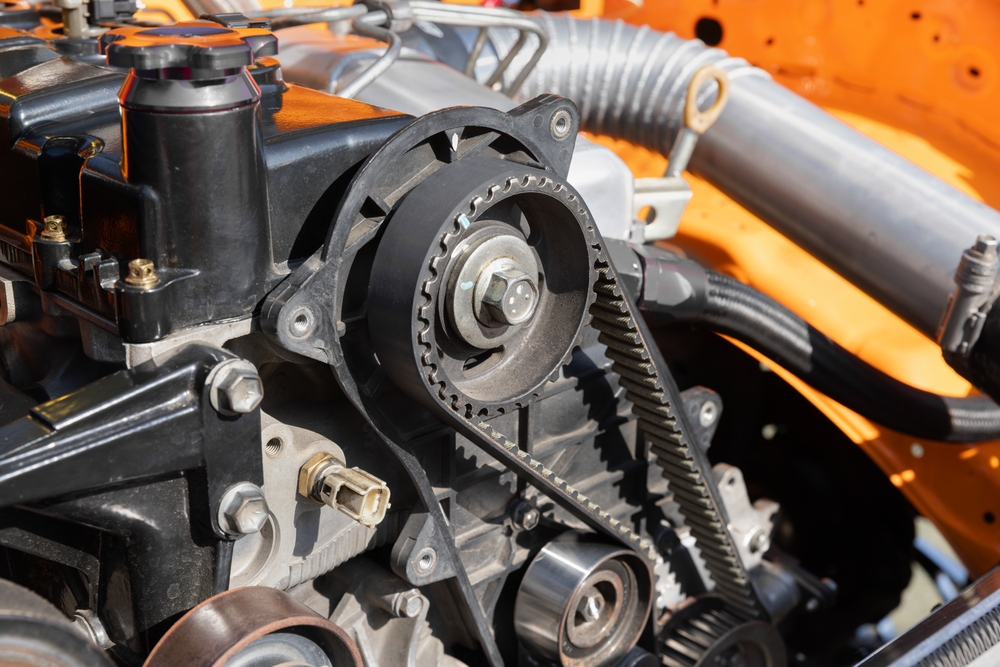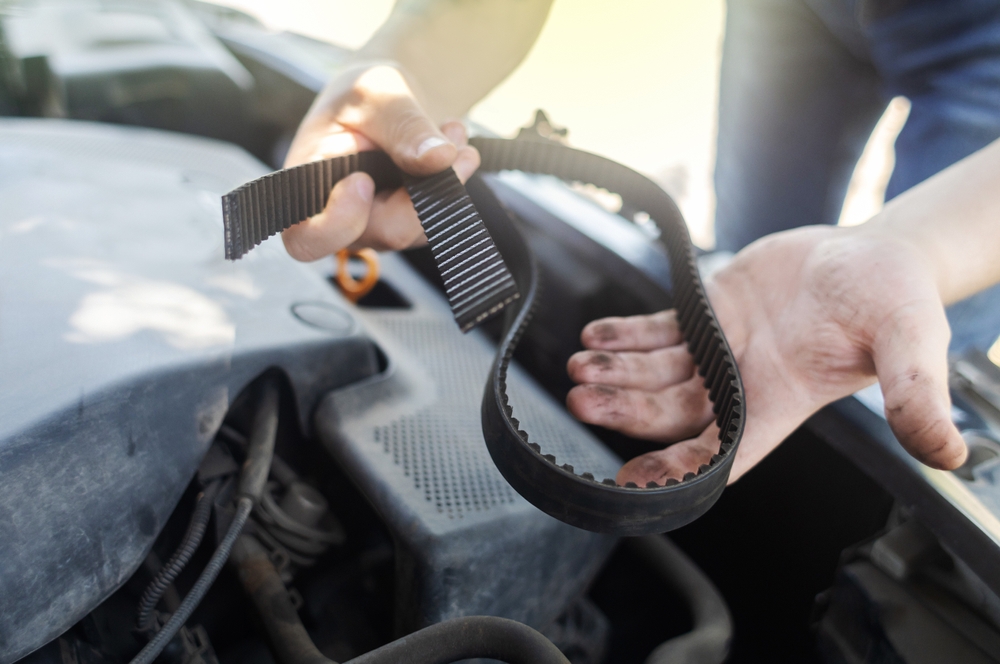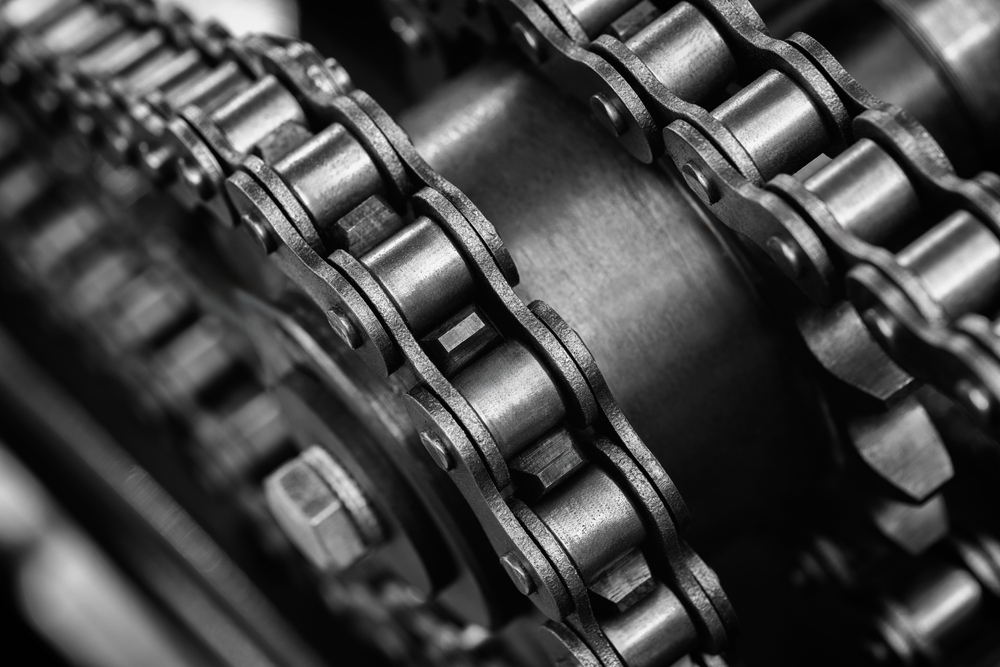Symptoms of a Failing BMW Timing Chain
The timing chain in a BMW is a critical component that ensures the engine’s valves open and close at the precise moments necessary for proper engine operation. Over time, the timing chain may fail, which can lead to severe engine damage. Below are the common symptoms indicating a failing timing chain in a BMW:
Rattling Noise from the Engine
One of the most noticeable signs of a failing timing chain is a rattling noise, especially when the engine is idling. This noise is often due to the timing chain becoming loose or stretched over time. The sound can be described as a metallic clanking or rattling, and it tends to worsen as the engine continues running without maintenance. If you notice such noises, it’s crucial to get your BMW checked immediately to prevent further damage.
Engine Misfires and Poor Performance
A stretched or worn timing chain can cause the engine to misfire, resulting in jerky acceleration, rough idling, or sudden loss of power. This happens because the timing chain cannot maintain the synchronization between the camshaft and the crankshaft, leading to improper valve operation. Persistent engine misfires can damage other components of the engine, increasing repair costs if not addressed promptly.
Check Engine Light Activation
The check engine light is a common indicator of various engine problems, including timing chain issues. Modern BMW engines are equipped with sensors that detect abnormalities in timing. If the timing chain stretches beyond its limits or starts failing, these sensors can trigger the check engine light. If this warning appears, a diagnostic check should be performed to identify the cause, which might be a faulty timing chain.
Metal Shavings in the Oil
Finding metal shavings during an oil change can be a sign that the timing chain is deteriorating. As the chain wears, small metal fragments can break off and mix with the engine oil. This not only signifies a failing timing chain but also indicates potential damage to other engine parts due to contaminated oil. Regular oil checks and maintenance can help catch this symptom early.
Rough Idling and Vibrations
A failing timing chain can lead to rough idling, where the engine shakes or vibrates more than usual. This symptom often starts subtly and gradually worsens as the chain continues to wear out. Drivers may notice increased vibrations when the car is stationary, which indicates that the timing chain is not maintaining proper tension.
Engine Failure or No Start Condition
In severe cases, a completely failed timing chain can prevent the engine from starting. If the timing chain snaps, the synchronization between the pistons and valves is lost, causing catastrophic engine failure. This can result in bent valves, damaged pistons, or even a broken engine block. If this occurs while driving, the engine will stop suddenly, which can be dangerous.
Causes of Timing Chain Failure
Several factors can lead to timing chain failure in BMWs:
- Lack of Proper Lubrication: Timing chains require sufficient lubrication to reduce friction and wear. Using the wrong type of engine oil or failing to change the oil regularly can lead to a dry, under-lubricated chain that wears out faster.
- Wear and Tear: Over time, even with proper maintenance, the timing chain will experience wear and tear due to the high speeds and stress it endures. This wear can cause the chain to stretch, loosen, or even break.
- Defective Tensioners and Guides: The timing chain relies on tensioners and guides to stay in place. If these components are faulty, the chain may not maintain the necessary tension, leading to premature wear or failure.
- Contamination: Dirt, debris, or sludge buildup in the engine can contribute to timing chain wear. Contaminants can interfere with the smooth operation of the chain, increasing the likelihood of failure.

Preventive Maintenance Tips
To minimize the risk of timing chain failure, consider the following maintenance tips:
- Regular Oil Changes: Using high-quality engine oil and changing it at the recommended intervals helps ensure proper lubrication of the timing chain. Stick to the oil specifications provided by BMW for optimal performance.
- Scheduled Inspections: Regular inspections by certified BMW technicians can help detect early signs of timing chain wear. Identifying and addressing issues before they lead to significant damage can save considerable repair costs.
- Moderate Driving Habits: While BMWs are built for performance, avoiding excessive high-speed driving or rapid acceleration can reduce the stress on the timing chain and other engine components, prolonging their lifespan.
- Listening to Engine Sounds: Pay attention to unusual noises coming from the engine, such as rattling or knocking sounds. Early detection of these sounds can prompt timely inspections and repairs.
When to Replace the Timing Chain
Unlike timing belts, which often have a specified replacement interval, timing chains are generally designed to last the vehicle’s lifetime. However, they can fail prematurely under certain conditions. If you notice any of the symptoms mentioned, it’s advisable to have the timing chain inspected. Regular maintenance and using the correct type of oil are key to extending the life of your BMW’s timing chain.
Understanding the Role of the Timing Chain in BMW Engines
The timing chain is a vital component in BMW engines, responsible for synchronizing the rotation of the crankshaft and camshaft. This synchronization ensures that the engine’s valves open and close at precise times, allowing for efficient combustion and optimal performance. In BMW vehicles, timing chains are preferred over timing belts because of their durability and ability to withstand high speeds and temperatures. However, despite being more robust than belts, timing chains are not immune to wear and tear. Over time, due to continuous operation and the harsh conditions within the engine, timing chains can stretch, become loose, or even fail. Understanding the timing chain’s role and ensuring its proper maintenance is crucial for maintaining the health and performance of BMW engines.
The Differences Between Timing Chains and Timing Belts
Timing chains and timing belts both serve the same fundamental purpose of synchronizing the engine’s internal components, but they differ significantly in their construction, maintenance needs, and lifespan. Timing belts, typically made of rubber, are quieter and less costly to replace but require replacement every 60,000 to 100,000 miles. They are often found in less performance-oriented vehicles. In contrast, timing chains, made of metal, are more durable and designed to last longer, often over 150,000 miles with proper maintenance. However, when timing chains fail, the damage can be more severe, and the repair process more complex and expensive. This makes understanding and monitoring timing chain health essential, especially for high-performance vehicles like BMWs.

The Impact of Timing Chain Failure on Engine Performance
A failing timing chain can significantly impact a BMW engine’s performance. As the chain stretches or wears out, it can lead to improper valve timing, causing various issues such as engine misfires, rough idling, and reduced fuel efficiency. These symptoms occur because the engine’s precise timing is disrupted, leading to incomplete combustion and inefficient engine operation. In severe cases, timing chain failure can result in catastrophic engine damage, such as bent valves or damaged pistons, which could necessitate a complete engine rebuild or replacement. Therefore, recognizing and addressing timing chain issues early is critical to maintaining engine health and avoiding costly repairs.
Timing Chain Replacement Costs and Considerations
Replacing a timing chain is an intricate and labor-intensive process, often requiring specialized tools and expertise due to its location within the engine. The cost of timing chain replacement can vary widely, typically ranging from $600 to $1,600, depending on the model of the BMW and the labor rates at the repair facility. While this may seem high, it is a fraction of the cost compared to repairing the extensive damage caused by a complete timing chain failure. Consulting with a BMW-certified mechanic to understand the condition of your timing chain and the associated costs is advisable to make informed maintenance decisions.
The Evolution of Timing Chains in BMW Models
BMW has continuously improved the design and materials of timing chains over the years to enhance their durability and reliability. Early BMW models, particularly those from the early 2000s, experienced widespread timing chain failures due to premature wear. In response, BMW introduced more robust chain materials and better tensioner designs to manage the stress and wear that these components endure. For newer models, these improvements have significantly reduced the incidence of timing chain problems, although regular maintenance remains crucial. Understanding the timing chain specifications and potential issues for specific BMW models can help owners anticipate maintenance needs and avoid unexpected engine problems.
Timing chain issues in BMWs can lead to severe engine damage if not addressed promptly. Recognizing the symptoms of a failing timing chain, such as rattling noises, engine misfires, check engine light activation, and rough idling, can help you prevent catastrophic engine failure. Adhering to regular maintenance schedules, using the right oil, and seeking professional inspections when symptoms arise are essential steps in maintaining the health and performance of your BMW’s engine. If you suspect timing chain problems, consulting a qualified mechanic early can save you from costly repairs down the road.



